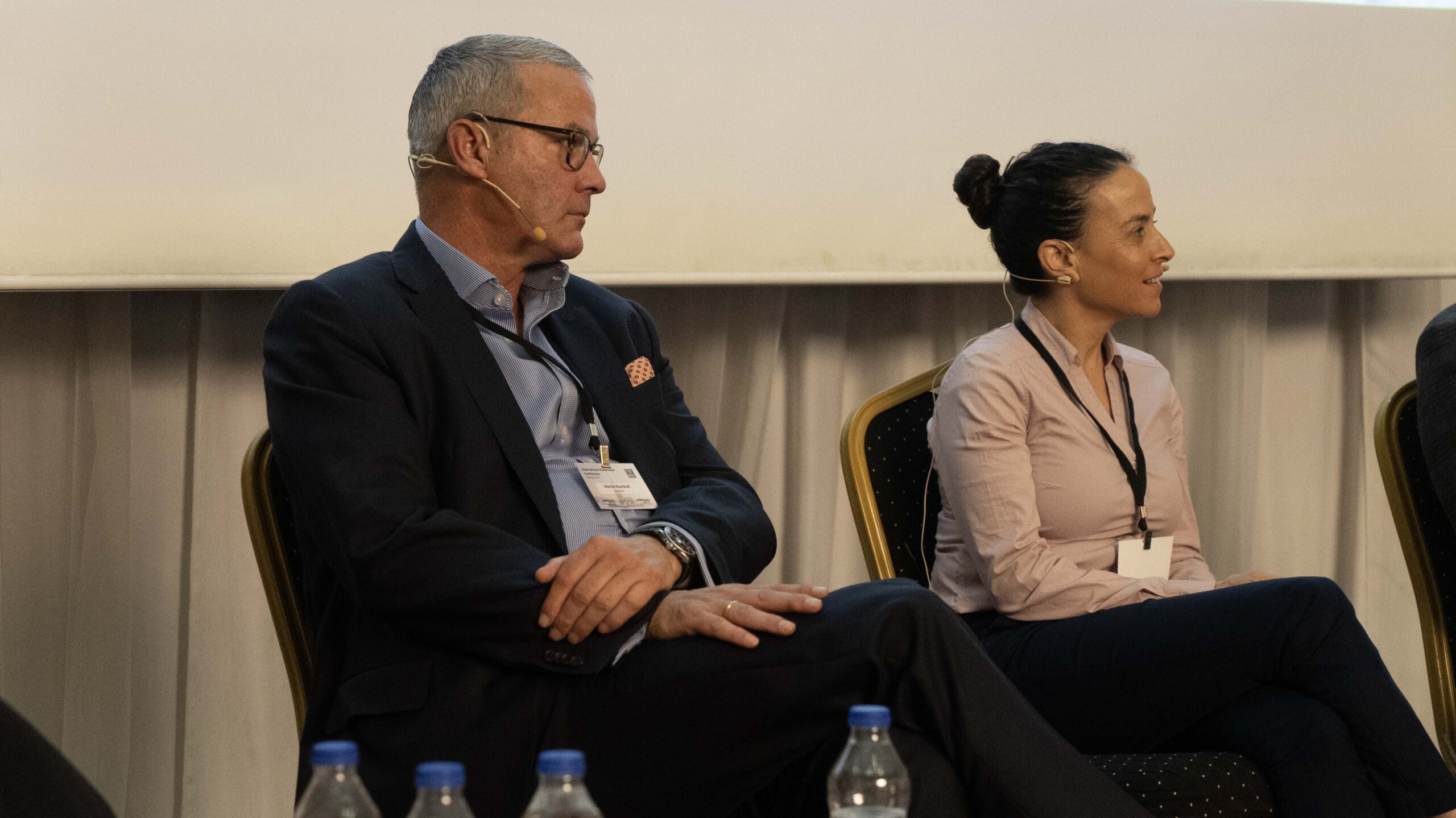News from the EPD International Stakeholder Conference – with Noa Meron, thinkstep-anz
9th Dec 2023
Noa Meron, Team Lead LCA at thinkstep-anz recently attended the EPD International Stakeholder Conference 2023 in Istanbul, Turkey. The theme for this year’s conference was ‘In EPD We Trust’. We asked Noa about her impressions of the conference and how EPDs are being used globally. She highlighted several important trends.
Noa, we’d love to hear about the conference and what you most enjoyed.
Noa: It was a great, well-organised conference. More than 120 people attended the event and another 250 people joined online. Most came from European countries, but there were also people from many other countries including Chile, Mexico, the United States, Egypt, India, Indonesia, China and South Korea. They came from many sectors including construction, consultancy (sustainability, LCA), academia (researchers, PhD students) and LCA software. Some were sustainability managers from sectors such as construction, construction material, chemicals, and technology.
The conference focused on how we can increase the number of EPDs produced to meet the needs of policy developers and the market. Speakers talked about EPD process certification (an organisation develops an internal process to verify EPDs, which is then certified by an accredited EPD certification body), pre-verified EPD tools and digital tools to manage the growing number of requests.
Embedding circularity
Martin Blumberg, Director of the ECO Platform Board, (the umbrella organisation for EPD program operators) talked about embedding circularity information into the EPD system. An ECO Platform working group spent the last two years developing a methodology that includes a quantitative statement on how circular products are. ECO Platform will pilot the methodology in the first quarter of 2024. Stakeholders, including EPD program operators, manufacturers of construction products and their associations as well as green building rating schemes will be consulted at the end of 2024. (You can watch his presentation here).
While I learned a lot from the presentations and the panel discussions, I particularly enjoyed the opportunity to network and see how EPDs are developing in other countries.
EPDs have traditionally been associated with building and construction products but the scope is broadening in some regions. What are some of the sectors, products and services that have published EPDs in other countries?
Noa: While the fastest growth of EPDs continues in the construction industry, we’re seeing more EPDs in other industries too. In Europe, especially in Italy, the number of EDPs in the food sector is growing. There are, for example, EPDs for pasta, tomato sauces and biscuits. In Scandinavia, you can find EPDs for electronics and public transport (trains and buses).
It’s also not only big companies who go for EPDs. In 2015, thinkstep-anz supported designer and manufacturer of furniture, lighting and accessories David Trubridge in developing an Environmental Product Declaration (EPD) which became the first to be registered under the Australasian EPD® Programme. We also worked with Geo40, a start-up producing colloidal silica, to publish the first EPD in the chemical products category under the Australasian EPD® Programme. In recent years, thinkstep-anz has also worked on EPDs for salmon and toilet paper.
How are EPDs becoming an integral part of environmental decision-making internationally?
Noa: There are many reasons for businesses to invest in EPDs. They realise that they’re not only selling a product, but a product and information that help their clients understand their Scope 3 greenhouse gas emissions. EPDs not only the businesses improve their operations but also provide clients with additional value.
Jane Anderson from ConstructionLCA gave a great overview of why EPDs are needed based on different international policies and compliance programs. What they all have in common is that they grow the demand for EPDs exponentially. The change in scale will be huge and we need to look at how to automate producing EPDs.
In Australia and New Zealand, EPDs have long been an important part of green building and sustainable infrastructure ratings. The uptake of construction product EPDs was initially driven by sustainability rating tools such as Green Star where products with EPDs gain credits towards a building Green Star rating.
Growth of EPDs – How do you see this trend playing out in Australia and New Zealand?
Noa: In New Zealand and Australia, EPDs are now being required by regulation. With a growing awareness of the impact of embodied carbon, both countries have started programs that will make disclosing embodied carbon mandatory.
From 2025 the New Zealand Building Code requires new building projects to disclose their embodied carbon. EPDs are recognised as the highest level of data quality to provide information for calculating this. The second highest level of data quality is a sector-level EPD for an industry association. These EPDs do not provide data for a specific product but they can be a good way for an industry to get started.
EPDs will help designers and specifiers understand the carbon footprint of the products they use in their designs and tenders and meet the new rules.
In Australia, the National Australian Built Environment Rating System (NABERS) is developing a tool to measure embodied carbon. EPDs are the preferred source of data. The new framework will be the product of extensive industry and stakeholder consultation. It is being developed in close partnership with the GBCA to harmonise the approaches Green Star and NABERS take on embodied carbon.
What did you learn about using tools such as EPD process certification and pre-verification tools?
Noa: Christian Donath from ECO Platform ran a workshop that looked at the EPD digitisation system. This was very useful. I think there’s a lot of room for automating the use of EPD results. Laura Carettoni from Mapei presented their work on EPD process certification. These can be very useful but need to be intensively reviewed each year.
Do you have any final insights or comments that you’d like to share with the Australian EPD community?
Noa: Many people at the conference mentioned the shortage of available EPD verifiers. We agreed that more EPD training material and courses are needed so practitioners can gain certifications.
It was inspiring to see the progress that is being made in EPDs around the world and to learn from others. I think that the way businesses use EPD results will change as the number of EPDs grows. There is so much to do as we move towards a low-carbon economy and EPDs will continue to play a major role for businesses to figure out how they can lower their impact.
Latest News
EPDA Welcomes Three New Independent Verifiers
EPD Australasia is pleased to announce the approval of three new independent verifiers for our programme. We congratulate Lindita Bushi, PhD, Viktor Hakkarainen,...
Rule Changes for EPDs for Construction Products
Changes to rules regarding multiple sets of results for construction products included in the same EPD Under our partnership agreement with the International...
Australian Government’s new Procurement Policy
EPD Australasia welcomes the release of the Australian Government’s Environmentally Sustainable Procurement Policy (ESPP) as a significant step in Australia’s progression towards a...

